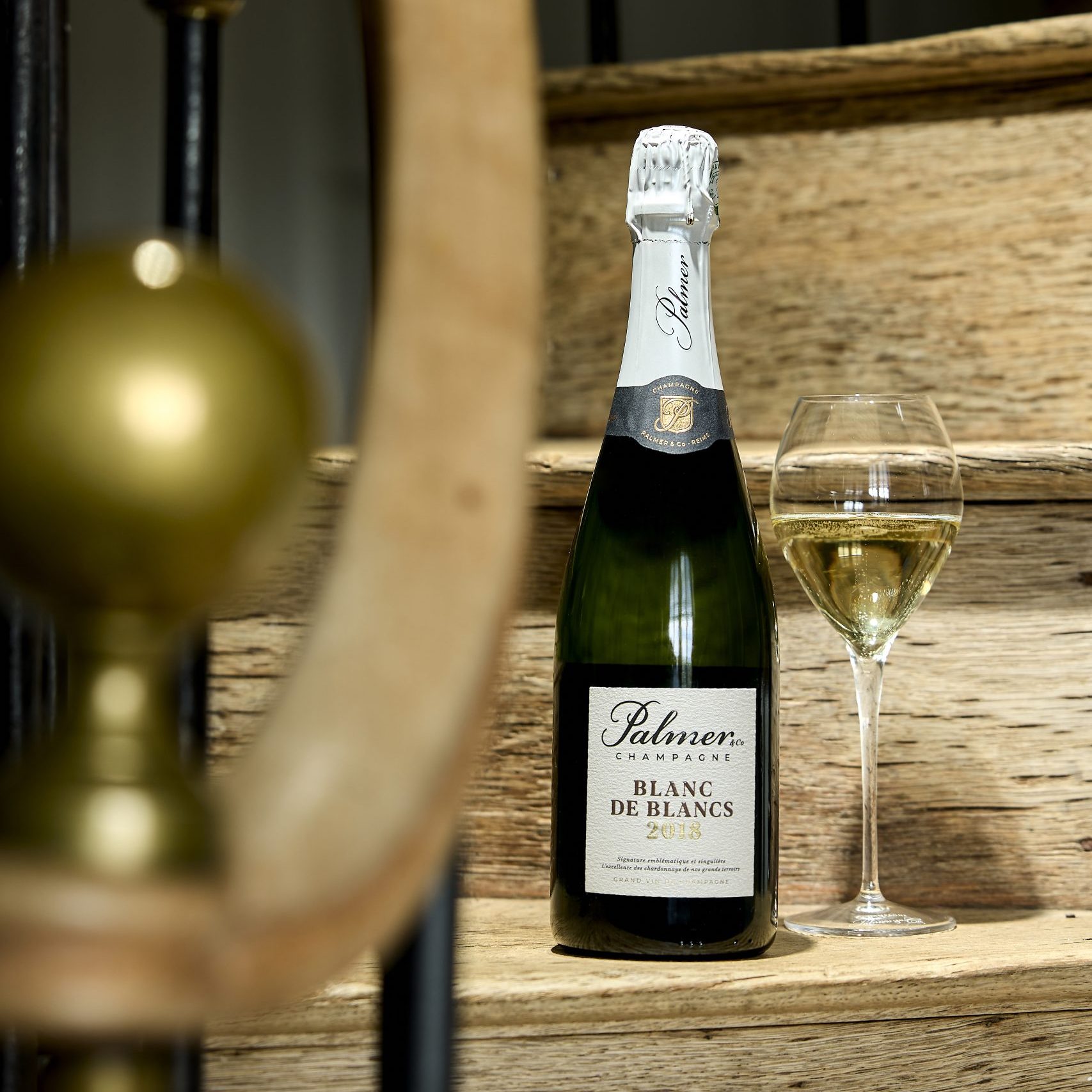What to drink at Compagnie des Vins Surnaturels
Wine bar Compagnie des Vins Surnaturels in Seven Dials promises bottles from artisan producers and bistro-style small plates. Louis Thomas looks at what’s worth ordering.
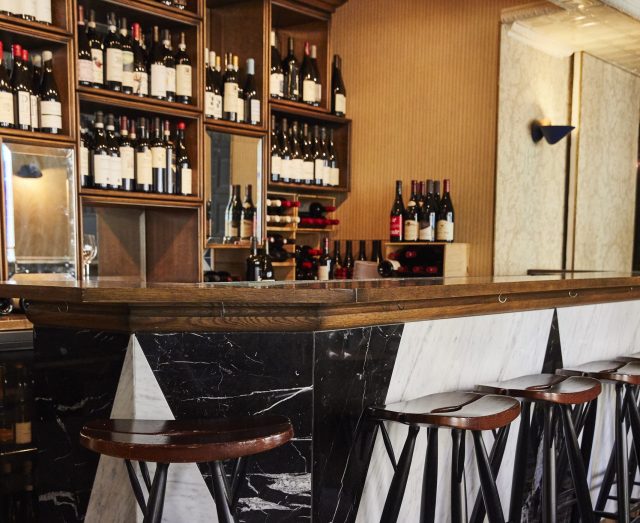
Given the slings and arrows that the hospitality sector has faced in recent years, Compagnie des Vins Surnaturels was pleasingly rammed when I visited last week – thirsty Thursday is very real indeed. Looking ahead to its 11th year in London, and with sister bars in Paris and New York, there is a decidedly Gallic influence to the bar, beyond the name.
Another French aspect of the bar is Experimental Group wine director Roman Jaën, who has curated a hefty list that, like many a biography of the early career of Napoleon Bonaparte, stays firmly in France until the halfway point.
Jaën explained the philosophy behind the list and the menu: “We showcase artisans that have a focus on small, but very high quality production. The food is designed to complement the wine, but as it’s a wine bar the dishes are fairly simple.”
Simplicity is very difficult to get right, but Compagnie des Vins Surnaturels does deliver there. A plate with two small wedges of cheese, one a Delice de Bourgogne, a wonderfully rich, triple cream, Brie-like creation, and the other, an almost smoky Cabri d’Ici goat’s cheese, may not seem like much, but with the right wine it is an elevated experience.
Jaën poured a 2021 Vouvray Chenin Blanc from Alexandre Giguel alongside (£14 for a 125ml glass), and in a textbook case of “if it grows together, it goes together”, it paired best with the Cabri d’Isci from the Loire (despite Giguel’s label sporting a cow, not a goat). It is an unavoidable cliché that acidic wines work with dairy because they cut through the fat, and that is certainly the case here, but the Vouvray’s slight touch of residual sugar really works and reining in what could otherwise be a wild-spirited cheese.
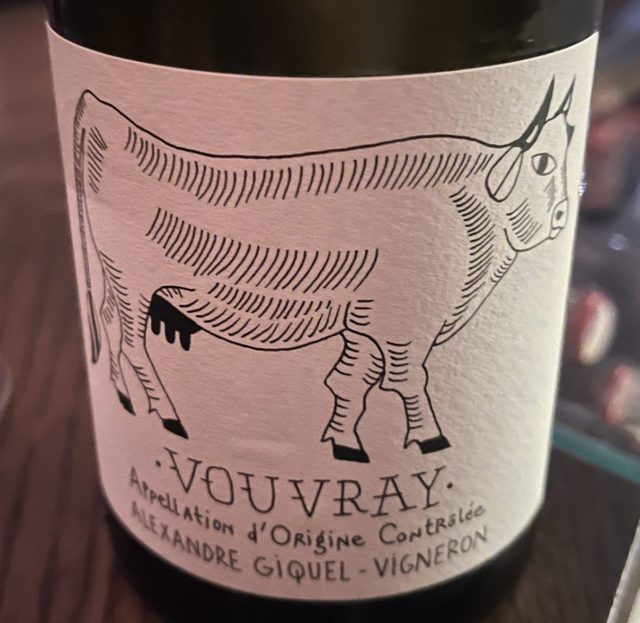
Given Jaën’s Burgundian upbringing, a dish featuring snails (£9) seems only natural, though it is quite a departure from the scalding hot shells you have to tong with surgical precision. Arriving in front of us with uncharacteristic speed, the de-shelled molluscs were doused in butter, garlic and parsley (it would be a shame to deviate too far from tradition), finished with a wafer thin slice of lardo (AKA pure pork fat) and served atop crispy toast, providing much needed texture to what might be the creamiest snails I have ever tasted, a sentence I hope to never write again.
The wine chosen for this dish was a touch more divisive.
“We always try to show wines with age,” Jaën shared, presenting a 2014 Wachau Grüner Veltliner Loibenberg from Pichler-Krutzler (£14 for a 125ml glass). I’m not sure if I would have picked up the white pepper note in a blind tasting, but knowing what the wine is does wonders for the palate. The savoury nose, including a genuine suggestion of celery, was, in my view, complemented by a slightly reductive, smoky touch that I enjoyed, but my colleague was far less taken with.
Though Jaën is by no means a pairings purist, the next combination demonstrated real thought. A single-varietal 2022 Monastrell from Bodega Ponce (£9 for a 125ml glass), situated in Eastern Spain’s Manchuela DO, might not be a go to choice for steak tartare (£15), but it should be.
Partner Content
“Monastrell is a grape that tends to be rich and intense,” Jaën argued, “so the winemaker does some carbonic maceration to soften it.”
That smoothing of the edges makes it a good bedfellow for finely chopped, raw fillet steak, which is too subtly flavoured for many a red. A more aggressive Monastrell/Mourvèdre/Mataro might work with dry-aged beef but would overpower a tartare.
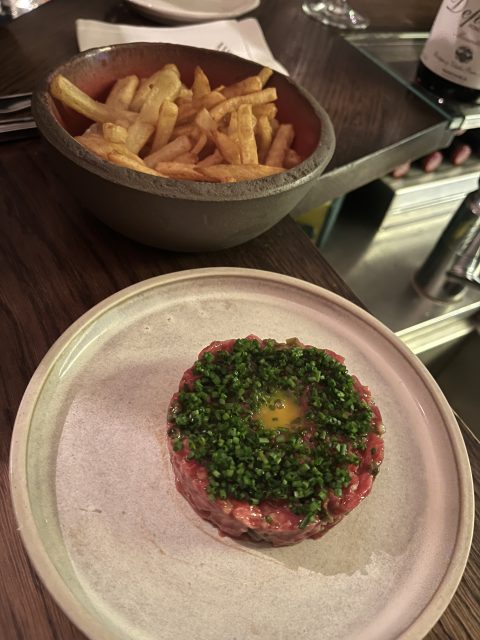
Laced with capers and cornichons, and topped with a raw quail egg and a ludicrous (but welcome) quantity of chives, Compagnie des Vins Surnaturels tartare and fries is a textbook example of what I want from classic wine bar food: good on its own, but it never hogs the limelight from what’s in the glass.
However, of the wines tasted over the evening, which also included an agreeable Cabernet Franc from Bourgeil-based producer Domaine de la Chevalerie, the clear winner for this unashamed Italophile was Luigi Figli Oddero’s 2018 Barolo (£23 for a 125ml glass), chosen by Jaën due to his partiality towards Piemonte – indeed, he shared that he makes an annual pilgrimage to the Langhe.
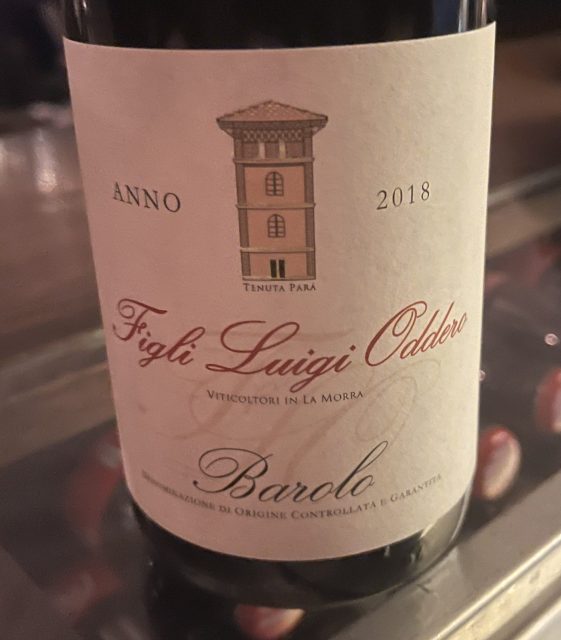
While my introduction to the world of Barolo was a WSET-chosen expression that ripped my face off with tannins, I have since grown to become infatuated with the “new school” of the King of Wines, which Luigi Figli Oddero’s expression is very much a part of. The nose was unmistakably that of a top notch Nebbiolo, rose petals and kitchen herbs with an underlying aroma of forest floor that grounds you in this neck of the woods, but the elegant, supple tannins (beautifully ripened thanks to 2018 being a particularly hot vintage) made for a glass that, unlike many a Barolo, needed no food to be more than palatable.
Given how the London wine bar scene seems to be torn between the stuffiness of old school spots and the funky natural wine upstarts, Compagnie des Vins Surnaturels’ great strength is that it reaches across the aisle, offering a compromise between modernity and tradition that makes for something rather compelling. If I had one major critique of the experience, it’s the amount of clambering over chairs and tables required to reach the bar (a symptom of just how busy it was) – but it’s worth such a physical feat for a whiff of that Barolo alone.
Related reading:
Related news
Strong peak trading to boost Naked Wines' year profitability
'Rare buying opportunities' as fine wine prices hit a five-year floor


